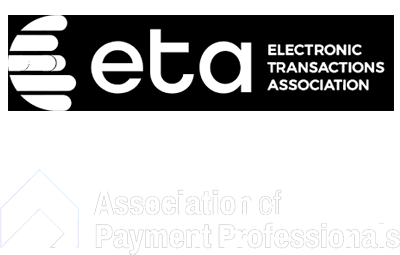29 Jun

As a business owner, understanding the role of a merchant account provider is crucial for streamlining your payment processing operations. A merchant account provider acts as a bridge between your business, your customers, and the payment networks, facilitating the seamless acceptance of electronic payments. In this comprehensive guide, we will delve into the intricacies of merchant account providers, their functions, and the factors to consider when choosing the right provider for your business.
Defining Merchant Account Providers
What is a Merchant Account?
A merchant account is a payment processing account that enables businesses to accept credit cards, debit cards, and other electronic payment methods. It serves as a temporary holding account where funds from customer transactions are temporarily stored before being transferred to the business’s designated bank account.
The Role of a Merchant Account Provider
A merchant account provider is usually a registered payment processing company that is sponsored by a financial institution that offers merchant accounts to businesses. They facilitate the payment processing journey, ensuring that funds are securely transferred from your customers’ accounts to your merchant account.
How Merchant Account Providers Facilitate Payment Processing
Application and Underwriting Process
When you decide to accept electronic payments, you will need to apply for a merchant account with a provider. The application process involves providing information about your business, including financial history, processing volume, and business type. You are also required to provide personal information including your social security number as a credit check is required. The merchant account provider conducts underwriting to assess the risk associated with you and your business and determine the specifics of your approval terms.
Payment Gateway Integration
Merchant account providers often offer payment gateway services as part of their solution. A payment gateway is a secure online platform that connects your business’s terminal, point-of-sale system or e-commerce website to the payment networks. It facilitates the transmission of transaction data, encrypts sensitive information, and performs verification checks to ensure the security and validity of the transactions.
Authorization and Settlement
When a customer makes a payment using a debit or credit card, the transaction data is securely transmitted through the payment gateway to the merchant account provider. The provider then initiates the authorization process by verifying the transaction with the customer’s issuing bank. Once the transaction is authorized, the funds are held in your merchant account. The merchant account provider facilitates the settlement process, transferring the funds from your merchant account to your designated bank account.
Chargeback Management
Merchant account providers also assist in managing chargebacks, which occur when a customer disputes a transaction. They help facilitate the resolution process by providing the necessary documentation and working with the payment networks and issuing banks to investigate and resolve the chargeback.
Factors to Consider When Choosing a Merchant Account Provider
Pricing Structure and Fees
Evaluate the pricing structure and fees offered by different merchant account providers. Common fees include transaction fees, monthly fees, statement fees, and chargeback fees. Consider your business’s transaction volume and average ticket size to determine the most cost-effective option for your needs. This is something you should evaluate at minimum once a year.
Integration and Compatibility
Ensure that the merchant account provider integrates seamlessly with your existing payment systems, whether it’s a point-of-sale system or an e-commerce platform. Compatibility is crucial to avoid disruptions to your business operations and ensure a smooth payment experience for your customers.
Security and Fraud Prevention Measures
Choose a merchant account provider that prioritizes data security and implements robust fraud prevention measures. Look for providers that are Payment Card Industry Data Security Standard (PCI DSS) compliant and offer features like encryption, tokenization, and fraud detection tools to safeguard your business and customer data.
Customer Support and Service
Prompt and reliable customer support is essential when dealing with payment processing issues. Look for a merchant account provider that offers 24/7 customer support and has a reputation for responsiveness and expertise. Having dedicated account managers can also be beneficial for personalized assistance. Most providers offer a dedicated support in today market.
Reputation and Track Record
Research the reputation and track record of potential merchant account providers. Look for reviews and testimonials from other businesses in your industry to gauge their experiences. A provider with a solid reputation and positive customer feedback is more likely to provide reliable and trustworthy services.
The Crucial Role of Your Merchant Account Provider
A merchant account provider plays a crucial role in facilitating payment processing for businesses, allowing them to accept electronic payments efficiently and securely. By understanding the functions and considerations associated with merchant account providers, you can make an informed decision when selecting the right partner for your business. Evaluate factors such as pricing, integration, security, customer support, and reputation to find a provider that aligns with your specific needs and optimizes your payment operations. PayBlox helps you choose a reliable merchant account provider to unlock the full potential of electronic payments and enhance your customers’ payment experience. The PayBlox platform brings multiple processors to you at the same time making them compete for your business.






